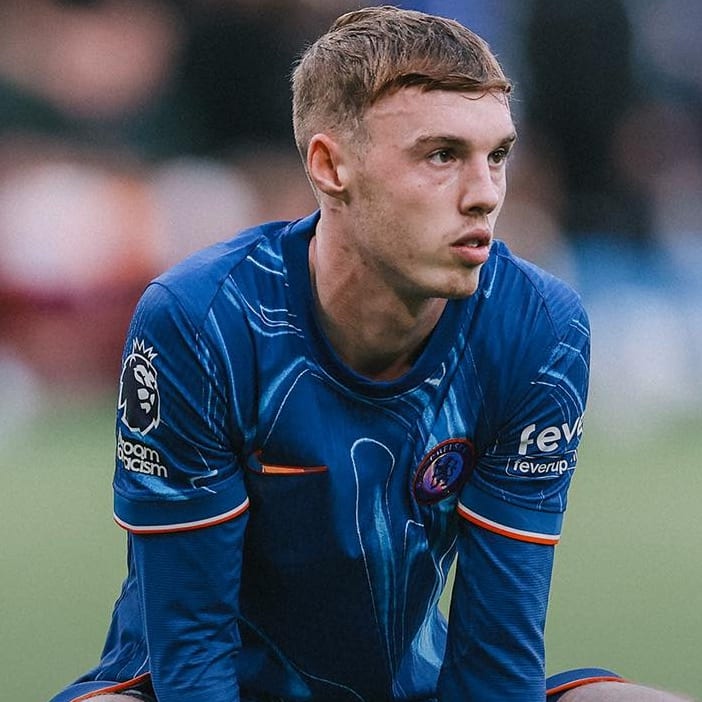This article is part of our Ask the Shark series.
It's a common refrain in DFS that fading highly owned players in GPPs is a legitimate winning strategy. The concept being that when the "chalk" underperforms, you gain a significant boost in placement since the bulk of the field will have these players in their lineups. While this is absolutely true, many of those playing DFS apply this strategy too much in a vacuum. This can often lead to very suboptimal situations, and many will end up failing to do well in GPPs despite utilizing a completely viable strategy on a conceptual level.
Ownership only matters when a lower or similarly priced player can provide equal or better production than one who will be much higher owned. The simplest application of this is in the forward position: the high-priced striker in a heavily favorable matchup will likely have high ownership. Fading him for a forward on a weaker side with potential to score multiple goals is a great way to get similar production for half the price, and if the high-owned striker significantly underperforms, the combination can shoot you right to the top of a GPP.
Where many go wrong with this GPP strategy is applying it without thought to "value plays" as well. The lower the price of a player, the less likely you will be able to find a similarly priced one who can put up at least the same number of points. A cheap midfielder who has been upgraded to a more prominent role in his team's
It's a common refrain in DFS that fading highly owned players in GPPs is a legitimate winning strategy. The concept being that when the "chalk" underperforms, you gain a significant boost in placement since the bulk of the field will have these players in their lineups. While this is absolutely true, many of those playing DFS apply this strategy too much in a vacuum. This can often lead to very suboptimal situations, and many will end up failing to do well in GPPs despite utilizing a completely viable strategy on a conceptual level.
Ownership only matters when a lower or similarly priced player can provide equal or better production than one who will be much higher owned. The simplest application of this is in the forward position: the high-priced striker in a heavily favorable matchup will likely have high ownership. Fading him for a forward on a weaker side with potential to score multiple goals is a great way to get similar production for half the price, and if the high-owned striker significantly underperforms, the combination can shoot you right to the top of a GPP.
Where many go wrong with this GPP strategy is applying it without thought to "value plays" as well. The lower the price of a player, the less likely you will be able to find a similarly priced one who can put up at least the same number of points. A cheap midfielder who has been upgraded to a more prominent role in his team's favorable matchup will likely have high ownership. However, unlike the previous example, fading this type of player is problematic even if you knew that at least 80 percent of the field will roster him.
Pivoting to a similar priced player with a limited floor or upside, while being low owned in comparison, doesn't actually give you much, if any, advantage since "underperforming" in that price range is practically non-existent. If the high-owned value play produces three fantasy points versus your low-owned differential producing the same, what did ownership really matter? You didn't gain anything regardless. On the other side, if the high-owned value play produces 12-15 points and you don't have him, you practically have no shot at cashing.
Playing contrarian in GPPs and weighing ownership into your lineup construction is a winning strategy, just be wise when doing so. Understand that fading value plays, despite potentially being high owned, typically only has downside and rarely ever much upside.
Onto this week's question!
What are your thoughts on satellites and qualifiers? Should low stakes players take a stab at these contests? - Mr. Malmanger, @mr_malmanger
DraftKings and FanDuel would hate me saying so, but satellites and qualifiers are quite possibly the poorest investment in all of daily fantasy sports. The primary reason is because not only is the contest for which you're attempting to win a ticket being raked at 15 percent-plus, but the satellites for said contest are *also* raked at a similar percentage. With the edge in DFS being fairly small for most players in the long run, paying rake two or even three times for the same contest is practically insurmountable to show a profit on. (Side note: I would definitely suggest DFS platforms make satellites rake-free in order to give more bang for the buck to all players, especially those in the mid-to-low stakes.)
Satellites and qualifiers are typically extremely top-heavy, with a ticket being awarded only to the top finisher, which makes playing it a very risky proposition. As with any rational bankroll management, you shouldn't spend too high a proportion of it on entries like this. If you're a low-stakes player putting in only $25-$50 of volume per slate, it's likely that no satellite would be prudent to enter. If anything, it would be better off to play and attempt to win the $3 GPPs and then just buy into that higher stakes special contest directly. At least the normal GPPs pay out 25 percent or so of the field, so you're not blowing through your bankroll trying to get the top spot in a satellite multiple times with no guarantee your overall investment will even result in a ticket.
However, there are certain occasions when playing satellites are a positive investment. This is when they don't fill and provide overlay, or at minimum, become essentially rake-free. Although it's still a risk to devote much of your volume on a slate to these top-heavy satellites, if you're so inclined to do so, definitely monitor the lobby for these overlay situations as contests are closer to lock. Often enough, you'll find some that are only about 80 percent full and you can then consider jumping in last-minute with an entry that is +EV.
As with DFS in general, always be smart and selective, even if that means skipping out on the "big tournament" everyone is talking up completely. Don't let your ego get in the way.
If you would like to submit a question for this weekly column, feel free to either post it in the comment section below, tweet it to me @blenderhd, or email me at jordan@fantasyflush.com.










